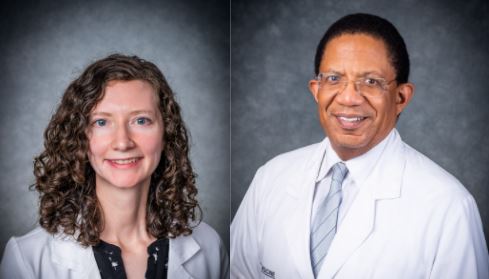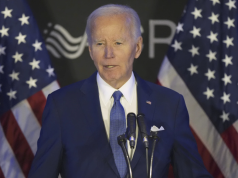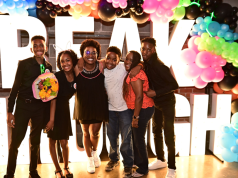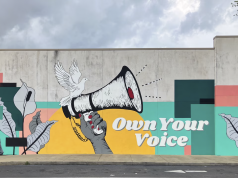
By Carter Dewees
For the Birmingham Times
Day in and day out, doctors, nurses, and essential workers tend to patients and save lives. Over the past year, in particular, these everyday heroes have been on the job 12 to 15 hours a day—sometimes without time off—which has meant a seismic change in both their professional and personal lives.
For Rachael Lee, M.D., who works with the UAB Division of Infectious Diseases, that meant meetings upon meetings and a pager that had to be on 24/7.
For Selwyn Vickers, M.D., senior vice president of medicine and dean of the UAB School of Medicine, that meant tending to the needs of both staff and patients.
These are just two of the hundreds of doctors who have given their time to care for the thousands of patients who filled hospital beds across the Birmingham metro area since the onset of the COVID-19 pandemic.
The Birmingham Times asked each of these health professionals to reflect on the past year from both professional and personal perspectives and share the lessons they learned.
Rachael Lee, M.D.
The Birmingham Times: When did you first begin working with COVID-19?
Dr. Lee: “My work on COVID-19 began before March a year ago. Infectious disease doctors recognized an increase of these cases of an unknown type of pneumonia early in January [2020], so my work actually started then, when we recognized that this was a novel, [or a new type of], coronavirus. The first thing I did was reach out to our facilities group to sequester our [personal protective equipment (PPE)] to make sure we had enough. That process [began] as we realized that cases were starting to pick up [abroad, in countries like] South Korea, Italy, and Iran, pretty much every day. So, our command center opened in February [2020]. I can’t believe it’s been more than a year ago.
“Once we set up, this command structure has been my day-to-day, for the most part. While people were going home, I was going to work every day with the incident command structure, really trying to identify the policies and procedures and write those out to protect our patients and our health care workers.
“During the 2009 [H1N1 influenza virus, or swine flu], pandemic, we already had an infrastructure in place for caring for the flu, and it was much easier to implement droplet precautions, which is what we use typically for influenza. It was easy for people to develop influenza vaccines and to trust the data behind that influenza vaccine. And then we also had medications that worked for that [illness]. When you look at COVID-19, we didn’t have any medications to begin with, we didn’t have a vaccine backbone at all to use, and everybody presented with very different symptoms. So, I think all of those are major learning points for our health care community.
“Also, you can see how confusion can set in very easily because one person may believe 100 percent one way and another person can believe 100 percent another way that they’re making the right decision—and maybe they’re both partially right. Finding that middle ground may be what we have to do, so that’s where the incident command structure at [UAB Hospital] has been very helpful. We would have pretty rigorous debates about what is best to do and, ultimately, no one was allowed to leave until we came up with a decision that everybody felt comfortable with. I think that has been an incredible infrastructure to have in our health care system.”
What do you think a “new normal” looks like?
“I have hope that we’ll be able to get back to our normal and not even a new normal—you know, going back to loving one another, hugging, having time together. A much harder question is, ‘When will that be?’ … When [safety] precautions are being lifted, we really want to take that big, deep breath of [relief]. We’ve also got a vaccine … [to prevent a resurgence]. But if we take [the restrictions] up too soon, we may see a resurgence. So, right now is the time to double down as much as we can, until we can get a large portion of people vaccinated so that maybe we don’t have to continue wearing masks in the fall. … I will say, the interesting thing—and I’ve thought about this a lot—with wearing masks is that the number of flu cases we’ve had in our hospital is incredibly low, [along with cases of] other respiratory viruses. It’s going to be interesting if we go back to our regular normal, not requiring masks, and see that kind of influx of patients who have the flu. I believe it’s a positive that masks did help prevent some of the other diseases we usually see, … if we can look at some bright side here, which is hard sometimes.”
How has the COVID-19 pandemic changed you?
“In addition to my standard work as an infectious disease doctor, we all take turns doing two-week blocks of seeing patients in the hospital, and I’ve continued to do that. In addition, there are meetings upon meetings in the command center to [assess] where are we in terms of our number of COVID-19 cases.
“To be honest, I wouldn’t be able to make it without my husband, who recognized the need for me to be in the hospital and to work. He took the brunt of being an awesome dad, caring for our kids and making sure they did virtual learning while somehow working at the same time. I have no idea how he did that.
“With my job, I have a 24/7 pager that goes off when there are questions about a patient who could be COVID-19 positive, … so I deal with a lot of questions on a daily basis. That keeps me quite busy. … I look forward to having a vacation one day.”
What would you say to someone who doesn’t take this pandemic seriously?
“Come follow me on infectious disease consultations to see these patients who were doing fine and are now struggling to breathe or on a ventilator and not doing well. … Not only that, but once they’re no longer infectious they’re still in the hospital requiring care, getting resistance infections, and still struggling to breathe. It really broke my heart because, to me, this is something that is preventable.”
Which UAB staffers stood out during the pandemic?
“We’ve had different units where we keep our COVID-19 patients, so some of the nurses have been taking care of these patients over the past year. … It is incredible and incredibly resilient of our nurses to be able to continue to do that and to provide that care.”
Selwyn Vickers, M.D.
The Birmingham Times: How has your life changed one year into the coronavirus COVID-19 pandemic?
Dr. Vickers: “As a leader, I’ve worked harder this year than I’ve ever worked before. Academic medicine is a mixture of interacting with people, internationally and nationally, and it involves engaging and presenting. All of those things have been taken away, … [as well as] a world where you freely took care of your patients and didn’t have to worry [so much] about the well-being of the daily lives of all the people who work here. All of that has changed this year [and] increased the challenges of [UAB’s] leaders, physicians, researchers, and staff to a heightened level.
“We’re blessed that we have jobs and have an industry that’s resilient, in spite of difficult economic times and in spite of pandemic. But it was difficult because of both the financial strain and the risk of getting infected, … and just an unbelievable daily grind of meeting and talking and dealing with people for 12 hours a day.
You’ve also been a member of Alabama Gov. Kay Ivey’s Executive Committee for the Coronavirus (COVID-19) Task Force. Please describe your experience in that role.
“It’s been a good experience to try to understand the difficulty in decision making in an environment where leaders have to worry about the economics of the state and balance that with the issues of safety and well-being of its citizens. It’s also challenged by the culture of personal rights and an independent mindset versus one that uniquely focuses on community over the rights of the individual.
“Alabama is one of the states where it’s largely, to some degree, about individual rights and protecting those rights, because that’s the culture, and finding a balance where you limit what you can do on personal rights versus realizing that you’re making decisions to save lives of people in the community.
“We’ve had, I think, a more public health-centric approach that’s as [good as or better] than that of any state in the Southeast. It was hard because some of the models predicted the worst of the worst to happen [in Alabama]. Those predictions, fortunately, didn’t come true.”
Do you think we’ll ever return to normal, and will vaccinations accelerate our return to a normally functioning society again?
“You don’t want to ever waste a crisis, so there ought to be some things that should never be normal. … From a science point of view, we hopefully will seize the ability to maximally develop vaccines at a rapid rate like we’ve done with the mRNA vaccines, [which use a copy of a natural chemical called messenger RNA to produce an immune response in the body]. … We haven’t had this technology before—and this is not going to be the last pandemic or epidemic.
What is one thing you have missed doing during the pandemic?
Eating a meal on an airplane.
What’s your favorite airplane meal?
“Probably short ribs. I just enjoy traveling, so if I’m eating a meal it means I’m traveling a far enough distance that [the airline] is serving a meal. That’s what I probably miss as much as anything—not having a chance to travel.”
What kind of challenges have you faced as the dean of the UAB Medical School?
“Making sure our clinical faculty stays safe and being able to serve the patients that [have] non-COVID-19 illnesses, as well as ensuring that the faculty taking care of patients and COVID-19-related illnesses have been able to be protected and stay safe. [I’ve also had to] make sure our researchers who live on the ability to get grants and the content for those grants have the ability to do so, as well as be sensitive to the needs of our staff who often are worried about job security because of finances at risk at these institutions.
“I’m proud of what [UAB has] done as an institution. There’s a lot of stuff left that we need to do as a community, but I do believe we are seeing the light at the end of the tunnel—and it’s not necessarily a train coming to run over us.”
To read more COVID-19 related stories, click one of the links below.




